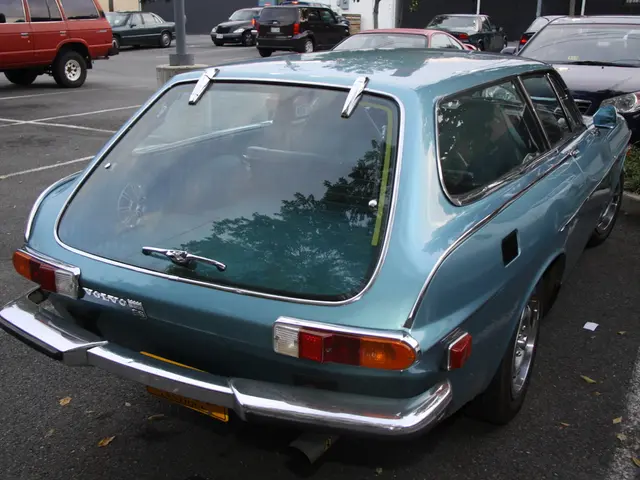Tomorrow's Airports: Potential Energy Landscapes of the Future?
In a bid to reduce the environmental footprint of airports, a new approach is being considered – building a unique airport ecosystem with hydrogen at the core of operations. This transformative concept is being championed by Airbus, who expects to announce strategic partnerships with key players across the aviation ecosystem in markets worldwide throughout 2021.
Airports, airlines, and energy providers are already signing on to get involved in Airbus' "Hydrogen Hub at Airports". This initiative is part of a broader effort to develop hydrogen infrastructure for climate-neutral airport operations by 2035. The collaboration includes several key initiatives focused on hydrogen fuel cell technology, clean hydrogen production, and integrated infrastructure projects.
ZeroAvia and Glasgow Airport & Loganair (UK)
ZeroAvia, a hydrogen fuel technology company, has partnered with Glasgow Airport and Loganair airline to develop hydrogen fuel infrastructure and hydrogen-electric propulsion for aircraft. ZeroAvia plans to locate its hydrogen fuel cell manufacturing facility near the airport and Loganair's headquarters to support fleet transition. The partnership includes projects funded by UK government grants, such as the £10.8 million Liquid Hydrogen System Integration & Flight Test (LH-SIFT) project.
ZeroAvia and Horizon Aircraft (North America/Global)
ZeroAvia is also collaborating with Horizon Aircraft to explore hydrogen-electric powertrains for electric vertical takeoff and landing aircraft (eVTOLs), extending hydrogen propulsion to regional air mobility markets.
Port of Seattle and Regional Partners (USA)
The Port of Seattle, along with the Port of Tacoma and the Northwest Seaport Alliance (NWSA), is involved in the broader Pacific Northwest Hydrogen Hub initiative funded by the U.S. Department of Energy. This hydrogen hub aims to scale production, storage, transport, and use of clean hydrogen, targeting cost reductions to $1/kg. The ports are exploring hydrogen for various transport applications including cargo handling and drayage trucks, which supports decarbonization of airport-related ground operations.
Jacobs Engineering (USA)
As a major airport infrastructure partner, Jacobs Engineering advances ESG initiatives including hydrogen fueling and net-zero runway designs across U.S. airports. Their $30 billion airport modernization pipeline also aligns with federal funding aimed at closing infrastructure gaps and integrating climate-resilient, low-carbon solutions such as hydrogen fuel.
Industry Conferences and Stakeholder Engagement
Events like the hy-fcell 2025 trade fair emphasize hydrogen mobility and aviation solutions, gathering key industry leaders including Airbus and tech companies to discuss trends and advancements in hydrogen infrastructure and propulsion systems.
Airbus' "Hydrogen Hub at Airports" concept aims to bring together key airport ecosystem players to better understand hydrogen infrastructure needs for future aircraft and to develop a stepped approach to decarbonising all airport-associated infrastructure using hydrogen. The convergence of public funding, private investment, and cross-sector partnerships is accelerating the adoption of hydrogen infrastructure aiming for climate-neutral airport operations and aviation by 2035.
Some of the strategic partnerships Airbus expects to announce throughout 2021 include a partnership with ADP (Paris Airports) and Air Liquide. This joint-partnership is focused on understanding hydrogen infrastructure needs at Paris Charles-de-Gaulle Airport (CDG) and Paris Orly Airport (ORY). Airbus sees itself as a facilitator, aiming to bring together all key players around the same table to ensure necessary infrastructure for zero-emission aircraft by 2035.
The use of hydrogen to power future aircraft and airport ground transport is expected to significantly reduce aircraft emissions in the air and on the ground. Airport-controlled activities account for around 2-3% of the aviation industry's total emissions, which represents approximately 15-20 megatons of CO2 emissions per year globally. Hydrogen could drastically cut the emissions of airport ground transport, including passenger transport via buses and heavy-duty vehicles such as aircraft tugs and cargo trucks.
Lionel Cousseins, the ZEROe Market Development and Airline Relations Manager at Airbus, emphasizes the importance of this transition, stating, "Airports have a key role to play in enabling the transition to a climate-neutral air transport ecosystem." Airbus launched "Hydrogen Hub at Airports" in 2020 to help airports reflect on how to transition to a climate-neutral air transport ecosystem by 2035.
In addition to the partnership with ADP (Paris Airports) and Air Liquide, Airbus has activated Memorandums of Understanding (MoUs) with two airline customers, SAS Airlines and easyJet, to assess hydrogen infrastructure needs at airports. An MoU with SAS Airlines is currently investigating airport infrastructure requirements for future hybrid, electric, and hydrogen aircraft.
The results of both studies are expected to be released later this year. As the world moves towards a more sustainable future, Airbus' "Hydrogen Hub at Airports" initiative represents a significant step forward in the quest for climate-neutral airport operations and aviation by 2035.
- ZeroAvia, a hydrogen fuel technology company, is collaborating with Glasgow Airport and Loganair airline, as well as with Horizon Aircraft, to develop hydrogen fuel infrastructure and hydrogen-electric propulsion for aircraft, extending hydrogen propulsion to aircraft and regional air mobility markets.
- The Port of Seattle, along with the Port of Tacoma and the Northwest Seaport Alliance (NWSA), are involved in the Pacific Northwest Hydrogen Hub initiative to scale hydrogen production, storage, transport, and use, targeting cost reductions to $1/kg. This initiative aims to decarbonize various transport applications, including airport-related ground operations.
- In addition to the partnership with ADP (Paris Airports) and Air Liquide, Airbus has activated Memorandums of Understanding (MoUs) with two airline customers, SAS Airlines and easyJet, to assess hydrogen infrastructure needs at airports for future hybrid, electric, and hydrogen aircraft.








